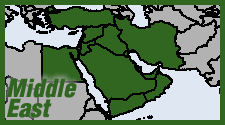 Israeli newspaper Haaretz on Aug. 15 featured an interview with the "King of Israel's Medical Marijuana Industry," Aharon Lutzky—who rose to this position by chance. The fateful moment came when his son was injured in an industrial accident in the cotton gin at Kibbutz Gvat, the agricultural collective in Israel's north where he was then living with his family. As part of his rehabilitation process, Lutzky's son began volunteering for the company Tikun Olam—Israel's largest producer of medical marijuana. Tikun Olam eventually asked the elder Lutzky to help by giving them business advice. Lutzky so impressed the owners that they offered him the position of CEO, which he still holds today. The profile provides a fascinating look at the evolution of Israel's ground-breaking medical marijuana program.
Israeli newspaper Haaretz on Aug. 15 featured an interview with the "King of Israel's Medical Marijuana Industry," Aharon Lutzky—who rose to this position by chance. The fateful moment came when his son was injured in an industrial accident in the cotton gin at Kibbutz Gvat, the agricultural collective in Israel's north where he was then living with his family. As part of his rehabilitation process, Lutzky's son began volunteering for the company Tikun Olam—Israel's largest producer of medical marijuana. Tikun Olam eventually asked the elder Lutzky to help by giving them business advice. Lutzky so impressed the owners that they offered him the position of CEO, which he still holds today. The profile provides a fascinating look at the evolution of Israel's ground-breaking medical marijuana program.
Tikun Olam was established as a non-profit in 2006 by scientist Tzahi Cohen, after he won permission from Israel's Health Ministry to grow a few dozen plants for registered medical marijuana patients. At first Cohen grew in his home on a moshav (agircultural settlement) in the north. But in 2010 the number of approved patients reached some 1,000, and he could no longer operate on an all-volunteer basis. Tikun Olam re-organized as a private, for-profit company—the first one in Israel's burgeoning legal cannabis industry.
The medical marijuana program remains tighly controlled, however. A doctor's recommendation must be approved by the Health Ministry, and then forwarded to one of eight authorized cannabis providers, which is assigned to the patient. Cannabis is not included in the package of state-subsidized health treatments, but the price is regulated. Every patient pays the supplier 370 shekels (just below $100) per month, out of his or her own pocket. The price is the same whether the prescription is for 20 grams or 200—the range that doctors can prescribe monthly. This system is designed to make it in prodicers' interest for buyers to use as little as possible. "Israel is unique on the matter of a fixed payment," said Lutzky. Nonetheless, the program is now up to 20,000 registered users.
Lutzky is enthused by the July announcement of Deputy Health Minister Yaakov Litzman that cannabis will eventually be available at regular pharmacies for patients with a doctor's prescription, and that the number of physicians authorized to prescribe cannabis will increase. This would effectively take the Health Ministry out of the process, giving more autonomy to patients, doctors and providers. "Litzman's proposal represents progress in the Health Ministry's views," said Lutzky. He added that Litzman is "opening the bottleneck" in the process, and his idea represents "a cognitive revolution compared to the previous view that [this] is a product for 'potheads,' a view that embodied the Health Ministry's lack of trust about the product."
There are other restrictions on the industry. There can be no imports or exports—although there is growing pressure for the latter. "This is one of the things we would like to change," Lutzky said. And the industry's biggest expense? "In Israel the biggest expense is security," Lutzky stated. "The heavy security costs, perimeter security with face recognition cameras connected to a center, and human guards around the clock." And unlike many industries in Israel, Tikun Olam hires no foreign worjkers. "Mostly because we need a safety permit for every worker. Israelis work for us, Druze, Christians, Jews."
Tikun Olam currently makes up some 30% of Israel's legal cannabis industry, and is engaged in ongoing research into new strains. "From the beginning we have seen ourselves not just as a grower company, but as a treatment company, too," Lutzky boasted. "We make sure our patients receive the best treatment... Not just smoking. You must remember that we sell flowers, which are used for smoking or inhalation, but we also sell cannabis in oil, capsules and cookies. One of our nurses interviews the patient, asks him about his medical history, why he came to it and teaches him about the right and appropriate strain."
In another restriction under the Israeli program, the doctor needs to confirm that the patient tried four other drugs for the condition without success before being allowed to recommend cannabis. Lutzky hopes this will change too. "In the worst case it is inappropriate for you and you stop. It is not addictive," he concluded in his comments to Haaretz, emphasizing that the research has only just begun. "There are other substances in cannabis in addition to THC and CBD. Substances that have been studied less and they too have a positive effect."
Cross-post to High Times







Recent comments
5 weeks 10 hours ago
5 weeks 17 hours ago
8 weeks 1 day ago
9 weeks 17 hours ago
13 weeks 1 day ago
16 weeks 6 days ago
20 weeks 6 days ago
21 weeks 4 days ago
31 weeks 4 days ago
35 weeks 5 days ago